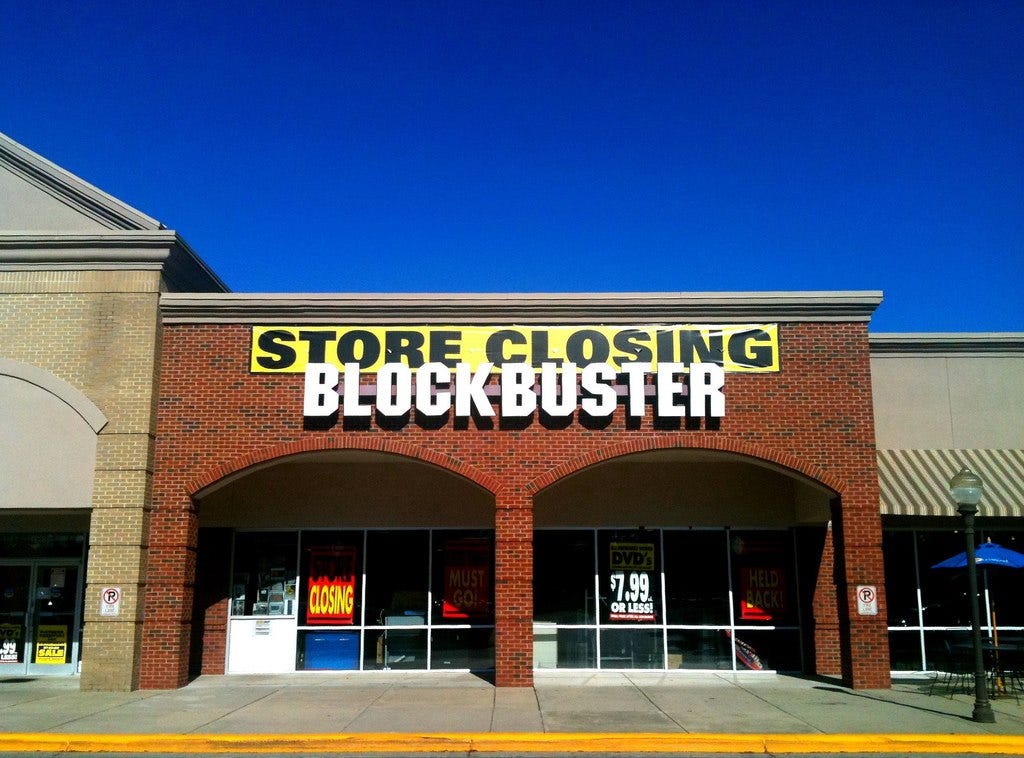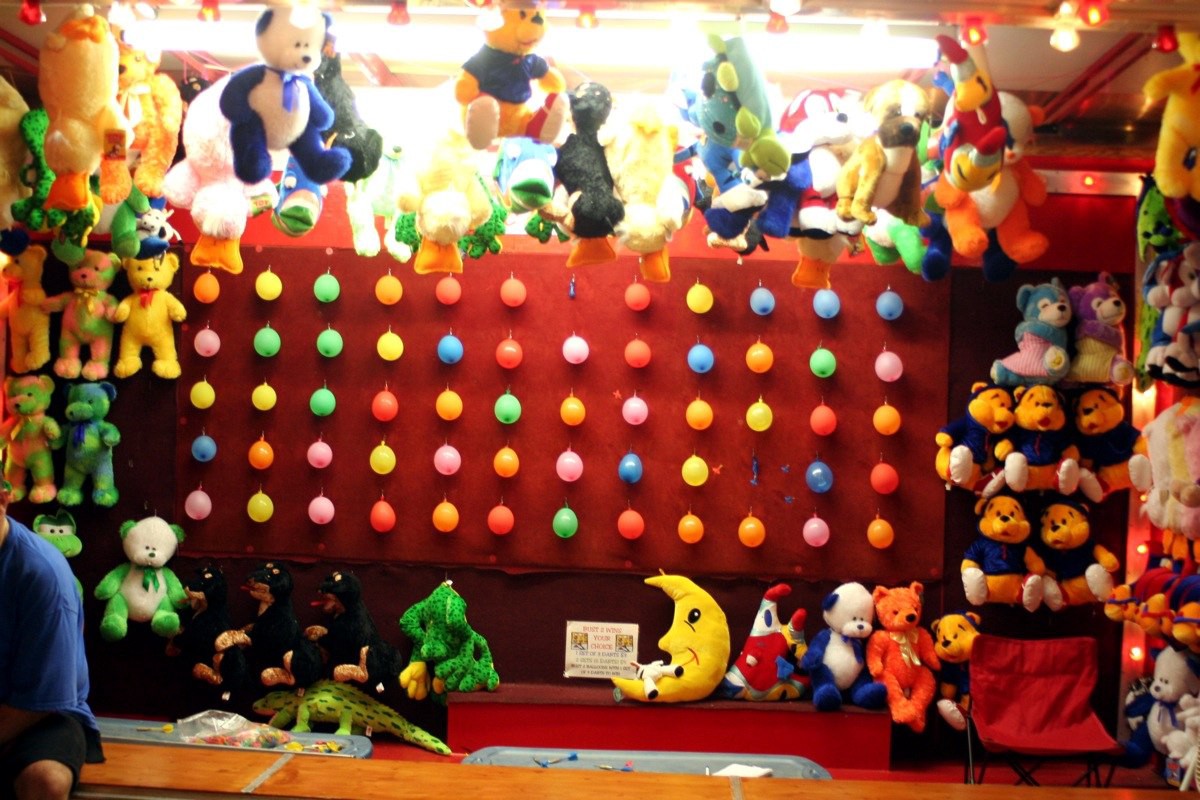Books & Culture
Bookstores Won’t Go the Way of Video Stores

by Jeremy Hawkins

How are bookstores and video stores similar?
I am probably asked that question more than anyone else in the known universe, because I work in a bookstore, and I also recently published a novel set in a struggling video store.
I have pat answers prepared. But it’s the subtext of the question I find most interesting. What people are really asking is, Isn’t it sad how bookstores are going the way of video stores, that is, off this mortal coil?
“Yes, it’s very sad,” I want to say. “Except it isn’t true.”
The similarities between the two industries are obvious. Both bookstores and video stores are retail businesses composed of shelves lined with stories of one variety or another. Some of those stories are real, some are commentary on the real, and some are completely made-up.
Both industries are staffed by zealous experts whose passion usually outweighs their paychecks, who take their reward from something other than cash-in-hand/possible career advancement/etc.
And both industries have experienced a recent-ish downturn due primarily to the evolution of technology, leading to a marked reduction in revenue.
And that, I believe, is where the similarities end.
For almost a decade I worked for a family-owned video store chain, VisArt Video in Chapel Hill and Durham, NC. I started working there in 2000, just after DVDs first came onto the market.
That time was, in many ways, the peak of the video store industry. You couldn’t not make money.
Remember those lines stretching through video stores on Friday and Saturday nights? Remember the annoying waitlist for hot new titles? The last time all that happened was 2002 or so, and I was the scruffy guy at the register. I was the guy calling you lickety-split when Legally Blonde was returned.
Of course video store business began dwindling quickly thereafter. Netflix, Redbox, DVR, TiVo, all the usual subjects. VisArt persevered longer than most. After all, we had an amazing selection — tens of thousands of titles — and a crazily devoted staff. Coming into VisArt was “an experience.” It’s where all your movie dreams came true.
But then, circa 2007, everything changed. Netflix streamed its first content. iTunes began providing full-length movies. YouTube went mainstream. And the first iPhone was released.
In the blink of an eye, the entire landscape of the entertainment business transformed.
We noble video store nerds saw the writing on the wall. With so many new ways of acquiring content, who would patronize their grungy local video store? Who would make that Herculean effort when movies and TV shows could be zapped directly to your hand or home?
It’s a simple equation: Technology changes, an industry dies.
Maybe it’s that simplicity that causes people to believe bookstores will follow the same path. Amazon and eBooks are new technologies, so it’s obvious that bookstores will ultimately fail, right?
But then there are all those zeitgeist-frustrating facts, widely reported, like that membership in the American Booksellers Association, a trade organization of independent booksellers, has gone up in each of the last five years. Which means that more bookstores are opening than closing. Period.
And take these circumstantial examples: Flyleaf Books in Chapel Hill, NC (where I now work) and Greenlight Bookstore in Brooklyn. Both stores opened in 2009, when the U.S. economy in general, and the bookstore industry in particular, were swirling in the toilet. Both Flyleaf and Greenlight are now profitable. Both are growing. Both have established themselves as cultural fixtures in their respective communities.
Both stores are here to stay.
And there’s this: A recent study showed that current college students (we’re talking literal millennials here) actually prefer reading print books over eBooks, claiming it helps them better retain knowledge.
If that factoid doesn’t blow your mind, then I suggest you read more books.
The truth is that, despite what you might have heard, people are still reading, and independent bookstores are doing rather well. Maybe not making a mint. Booksellers are still on edge, both financially and emotionally. We’re not poised to overtake Amazon anytime soon. But bookselling has proven to be a pretty darn robust industry. People are still buying books.
So what accounts for the discrepancy between the popular conception that bookstores will go the way of video stores, and the reality that they are not? Asked another way, why is everyone so quick to write bookstores’ obituary? What is this cultural obsession with obsoletism?
Perhaps it’s just in our bones — that technology always wins. We learn it as toddlers: we are trained, and have been for many generations, that “progress” is an unassailable good and that clinging to the past is naïve and pathetic. Thus we are programmed from the start to believe that technology is the biggest dog in every fight. Sure, John Henry defeats the steam-powered hammer. But what happens to him in the end? He dies of a massive coronary. Soul-scarring indoctrination complete.
From tall tales to Terminator (a movie, remember, where we all basically rooted for the evil robot), we’ve been inculcated to bow in supplication before new technology. To do otherwise is to be barred from the “Church of The New,” akin to being unhip, uncouth, unrighteous. And therein lies the social pressure I witness nearly every day at the bookstore — customers who love books, who gladly fork over their money to buy them, but who are certain that no one else in the world feels the same way.
Or perhaps it’s even simpler — perhaps we just enjoy narratives of tragic inevitability. This could be seen as cousin to that weird, culture-wide death wish that brings us back, over and over, to dystopian novels and movies. It is strange but true that we seem to find nothing so erotic as Armageddon.
In this perverse schema, the line of thinking is: Of course humanity annihilated itself in a nuclear holocaust. Figures. Or more to the purpose: Of course bookstores are going out of business. I saw that coming a mile away.
What I’m saying is, these and other biases are very likely clouding you judgment; I’m not claiming you want bookstores to close, only that you can be forgiven for having that misapprehension. Because based on the numbers, and based on the simple facts of their continued existence and current fiscal strength, bookstores have already been proven to enjoy some degree of safe harbor against the cyclone of technology that recently obliterated video stores.
So maybe just chill with the bookstore/video store comparisons.
I’ll conclude with a pithy and, I promise, entirely non-dystopian story:
On a beautiful spring day, a scruffy guy is working at an independent bookstore. Let’s call that bookstore Flyleaf Books, and let’s call that scruffy guy me.
A customer enters, staggers to the register, dons a pained expression, and whispers tragically, “So how’s business?”
As if I might collapse into hysterics if he spoke at full volume.
I smile. I tell the customer business is great. I tell him that more independent bookstores are opening than closing. I say that Flyleaf is here to stay. Of course he doesn’t believe me. Then he pity-purchases three trade paperbacks, secure that he’s done his virtuous, anachronistic duty.
A pity-purchase is a purchase, no matter how you slice it. We’ll take it.
But don’t worry.
Bookstores aren’t going anywhere.









